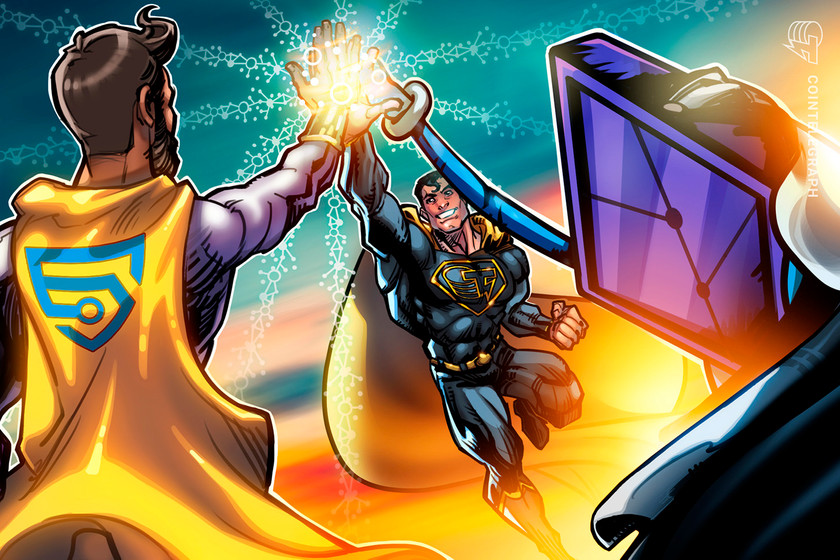Chainlink Labs enters into a strategic collaboration with Cointelegraph Accelerator to support Web3 startups


Cointelegraph Accelerator is excited to announce a strategic collaboration with Chainlink Labs, the primary contributing developer of the industry-standard decentralized computing platform Chainlink.
Cointelegraph Accelerator is excited to announce a strategic collaboration with Chainlink Labs, the primary contributing developer of the industry-standard decentralized computing platform Chainlink. This collaboration will align the Cointelegraph Accelerator and Chainlink BUILD programs, helping drive innovation and accelerate the growth of next-gen Web3 projects.
The Cointelegraph Accelerator is a global program that supports early-stage and up-and-coming Web3 startups. As part of the collaboration with Chainlink Labs, the Cointelegraph Accelerator will provide Chainlink BUILD projects with marketing support, media strategy, social media playbooks, user acquisition guides, access to the largest industry events, and other benefits that help accelerate their growth.
On the other hand, Chainlink Labs will engage with projects under the wing of the Cointelegraph Accelerator by offering technical support, mentorship and providing access to Chainlink’s decentralized computing platform and expanding their builder communities.


























